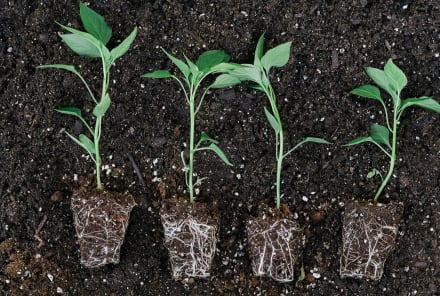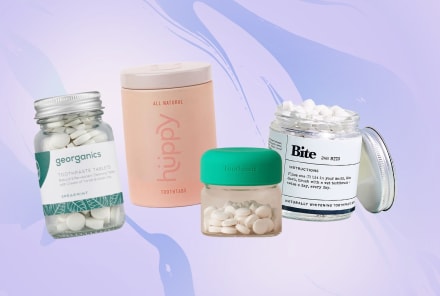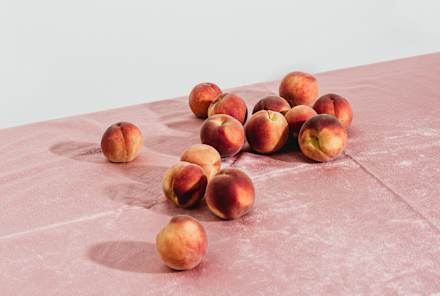Advertisement
4 Surprisingly Easy Foods To Grow Yourself That Pack In Nutrients, From An MD


It's no secret that home gardens have exploded in popularity of late—whether you opt for mood-lifting flowers or are partial to edible plant plots. When it comes to the latter, family physician and science journalist Daphne Miller, M.D., welcomes the move toward homegrown harvest: "I'm seeing this expansion of the terrace, front yard, backyard, side yard, and sidewalk farming movement," she says on this episode of the mindbodygreen podcast (indoor windowsill gardens, too!). "I see that as a really amazing source of both nutrients and beautification in the neighborhood."
But if you are going to start your own edible home garden, you may wonder: Which healthy plants are the most beginner-friendly? Below, Miller lists a few underrated superstars that are surprisingly easy to nurture. Consider them low-maintenance crops that pack quite a nutritious punch:
Herbs & spices
No surprise, Miller is a fan of the humble herb garden: "The oreganos, the thymes, the rosemaries, the alliums—all of these things that give you a lot of nutrition bang for your buck," she says.
Let's dip into the research: Studies have shown that the flavonoids and phenolic acid in oregano can help manage inflammation and oxidative stress1; thyme has well-documented immune-supporting powers2; rosemary touts antioxidant and neuroprotective properties3; finally, alliums (think garlic, scallion, shallot, leek, and chives) are chock-full of antioxidant properties—some experts even recommend eating a clove of garlic a day, if you can tolerate the taste.
In terms of ease, herbs are notoriously low-maintenance: "Herbs tend to recede themselves," says Miller, and they tend to be perennial (meaning, they live on for multiple growing seasons). See here for how to prep your very own herb garden.
Chayote
This Mexican squash is rich in antioxidants, fiber, and phytonutrients—namely, quercetin and myricetin4 (another powerful flavonoid). One study even found that dried chayote had an antioxidant and anti-inflammatory effect in older adults with metabolic syndrome5. The gourd has a flavor akin to a cucumber or jicama, and you can enjoy it cooked or raw—simply snap it right off the vine.
Kale
Miller also touts the ease of kale trees. For those without a yard, don't worry—these trees typically grow 2 to 3 feet tall, and they're pretty resilient: "[They] can really take everything from tons of water to a minimum of water," says Miller.
She continues, "These perennial trees produce the most delicious, buttery, sweet kale leaves." In case you need a refresher on the health benefits of kale, the cruciferous veggie is high in vitamins, antioxidants, and fiber. Often dubbed a "nutritional powerhouse," this is one worthy plant for your home garden.
Nopales
Of course, we'd be remiss not to mention cactus, as these "really take no water," says Miller—perfect for the forgetful plant parents among us. Nopales refer to the pads of the cactus, and, according to Miller, are low-glycemic players with tons of antioxidant capabilities; one study even found that the nopal cactus may have neuroprotective properties6.
"You can just cut off one pad and actually eat it raw," Miller notes. "There's a great way to prepare it raw and make a salad with it. [It's] delicious with lime or lemon." Sounds delightfully thirst-quenching, no?
The takeaway.
"These are all vegetables that do very well within local soil and give right back in terms of nutrition," says Miller. In other words: They don't take much to grow, yet they pack in health benefits. Seems like a sound investment to us.
Enjoy this episode sponsored by Cotton! And don't forget to subscribe to our podcast on iTunes, Google Podcasts, or Spotify!
6 Sources
- https://www.ncbi.nlm.nih.gov/pmc/articles/PMC5874591/#B99-plants-07-00002
- https://www.sciencedirect.com/science/article/pii/S1018364713000918
- https://www.ncbi.nlm.nih.gov/pmc/articles/PMC4749867/
- https://pubmed.ncbi.nlm.nih.gov/24858497/
- https://www.mdpi.com/2076-3921/8/5/146
- https://pubmed.ncbi.nlm.nih.gov/25232708/











